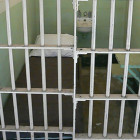
Juvenile Sex Offenders: Locked Up for Life?
|
Medical experts raise questions about indefinite civil commitment for troubled youths
At 21, Thomas Simmons has spent nearly half his life in confinement. When he was 13, Simmons was sent to a juvenile detention center for raping and sexually abusing a younger relative over a period of years. When he was 17, Simmons became the youngest person indefinitely committed to South Carolina’s adult violent sex offender treatment program, according to court testimony. The government initially placed Simmons in a restricted wing and assigned a staff member to stay with him to protect him from the other residents, many of them middle-aged child molesters, a program psychologist testified earlier this year. Four years after his civil commitment, Simmons is asking the South Carolina Supreme Court to order his release. Though experts for the state Attorney General’s Office say Simmons is still dangerous, a psychologist at the sex offender commitment center testified at a court hearing earlier this year that Simmons has not shown signs of sexually violent behavior since before he was 13, and should be released.

